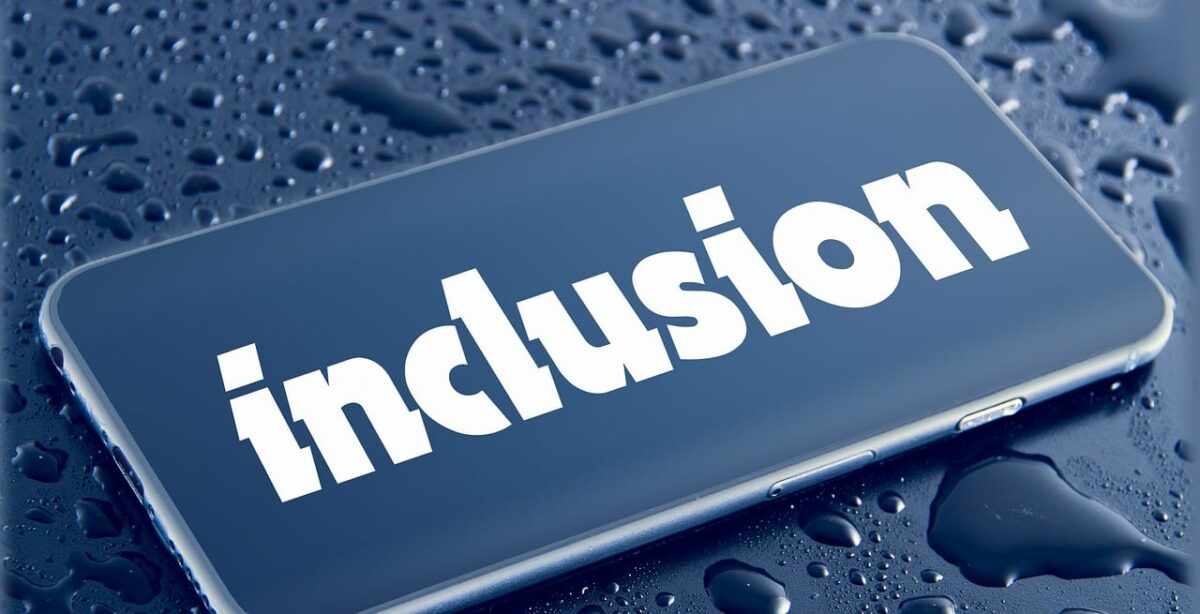What Qualifications Should I Include In A Job Description

Any employer can find writing a job description a daunting task. While we have previously covered the topic in articles such as how to write a job description and what to include in a job specification, we feel it is time to shine the spotlight on job qualifications. Understanding the role of qualifications in the hiring process will help you create effective job descriptions that bring the best job seekers to your door. If you are passionate about reaching the best potential candidates, you will find this article an excellent read.
In our guide to finding qualified candidates through a great job description, we discuss the following:
- What are qualifications and equivalent experience?
- How to balance ‘must-have’ and ‘nice-to-have’ qualifications
- What are qualified candidates?
- How to add education to a job description
- How to add experience to a job description
- Adding skills and abilities when writing job descriptions
- Adding language fluency to job descriptions
- Avoiding common pitfalls when listing job qualifications
- Aligning job qualifications with company culture and values
- Qualifications and job description examples for all job titles
What Are Qualifications And Equivalent Experience?

In the bustling world of hiring, two terms frequently stand out in job postings: ‘qualifications’ and ‘equivalent experience.’ These phrases are more than just recruitment jargon; they’re essential components that help shape a job description and ultimately guide the hiring process.
Qualifications are a blend of the education, skills, and experience an ideal candidate should possess for a specific role. They can range from holding a particular degree or certification, demonstrating proficiency in certain software or tools, to having a set number of years working in a specific industry or role.
On the other hand, ’equivalent experience’ is a slightly more flexible term. While a candidate might not possess the exact educational background or credentials outlined under qualifications, they may have amassed a level of experience that allows them to perform the essential activities of the job at the expected level just as effectively. For example, an applicant for a managerial position might not have the MBA typically required but has spent several years successfully managing a team in a similar industry.
In essence, equivalent experience is a term that acknowledges the value of hands-on experience and practical knowledge gained over time. It allows employers to widen their talent pool and consider candidates who, while not conventionally qualified, may bring unique insights, skills, and perspectives to the table.
How To Balance ‘Must-Have’ And ‘Nice-To-Have’ Qualifications

Crafting the right balance between ‘must-have’ and ‘nice-to-have’ qualifications in a job description is a delicate task. ‘Must-have’ qualifications refer to the essential skills, experience, or education needed for a candidate to effectively perform in the role. They’re non-negotiable and define the minimum criteria a candidate must meet. On the other hand, ‘nice-to-have’ qualifications are not mandatory but can enhance a candidate’s performance in the job posting. These could be additional skills, higher levels of education, or extra years of experience beyond the required minimum, so are well-worth considering when your write a job description.
Balancing these two sets of qualifications during your recruiting process requires careful thought about the role and the ideal candidate. It’s crucial to have a clear understanding of what the job truly requires and what can be learned or developed on the job. While ‘must-have’ qualifications should be concise and specific, ‘nice-to-have’ qualifications can be broader and more flexible. This approach allows you to capture a wide pool of potential candidates while still ensuring they have the essential qualifications to succeed. Remember, the goal of effective job descriptions is to invite applications from candidates who are perfectly suited for the vacancy but also leave room for those who may bring additional value beyond the fundamental requirements.
What Are Qualified Candidates?

Qualified candidates are individuals who meet or exceed the requirements specified in a job description. They possess the necessary education, skills, and experience to effectively carry out the job duties. This may include specific degrees or certifications, proficiency in certain software or technologies, and a certain amount of experience in a relevant field or role. Qualified candidates not only match the ‘must-have’ criteria, but may also meet many of the ‘nice-to-have’ qualifications, positioning them as potentially valuable assets to the organisation.
How To Add Education To A Job Description

Incorporating the education requirements when you write a job description is a key component of attracting the right talent. This specification sets the stage for the academic accomplishments a prospective candidate should possess. Whether it’s a high school diploma, a specific bachelor’s degree, or an advanced degree like an MBA, the education requirement outlines the foundational knowledge necessary to succeed in the role.
When adding education to job descriptions, first, consider the level of academic expertise needed for the job. Is a specific field of study essential? Or would any related field suffice? Second, be clear and concise. If a bachelor’s degree in computer science is necessary, state that explicitly. If an advanced degree is preferred but not required, make sure to distinguish that as a ‘nice-to-have’. Remember, the goal is to attract candidates whose educational background aligns with the needs of the position, creating a smoother onboarding and recruitment process, and setting the stage for future success.
Here is a list of various levels of education and qualifications one might attain in the UK, which might in enough detail help you create a more compelling job description:
- GCSEs (General Certificate of Secondary Education): Typically completed at age 16.
- A Levels (Advanced Level Qualification): Usually taken after GCSEs in the final two years of secondary education.
- NVQs (National Vocational Qualifications): Work-based awards at different levels from 1 (competence in performing tasks) to 7 (strategic management skills).
- BTECs (Business and Technology Education Council Certificates): Vocational and work-related courses offered in various sectors.
- Foundation Degrees: Typically two years full-time learning that combines academic and work-based skills.
- Bachelor’s Degrees: Such as Bachelor of Arts (BA), Bachelor of Science (BSc), usually completed in three years.
- Master’s Degrees: Such as Master of Arts (MA), Master of Science (MSc), generally requiring one to two years of study after a bachelor’s degree.
- PhD (Doctor of Philosophy): The highest level of degree a student can achieve.
- PGCE (Postgraduate Certificate in Education): A one or two-year course that provides training in order to become a Teacher.
- HND (Higher National Diploma): A work-related course provided by higher and further education colleges in the UK.
- Professional Qualifications: These are often specific to certain industries, like Chartered Institute of Marketing (CIM) for a Marketing Manager, Association of Chartered Certified Accountants (ACCA) for accounting, and so on.
This list is not exhaustive, and there are many other types of qualifications depending on the specific sector and the level of education.
How To Add Experience To A Job Description

Adding experience requirements to a job description is a fine art that can significantly influence the caliber of candidates you attract. Clearly defining this crucial aspect not only weeds out unqualified candidates but also helps potential applicants gauge their suitability for the job.
To start writing a job description, determine the minimum amount of experience required for the position. Is it an entry-level position that welcomes fresh graduates, or does it require a few years of industry experience? Be explicit about this in your job description. For example, you might state, ‘At least three years of experience in a similar role is required.’
Next, elaborate on the kind of experience you’re looking for. This could involve managing teams, using specific software or tools, or working in a similar industry. Specify the key tasks the candidate should have experience in. For instance, ‘Experience in managing marketing campaigns and coordinating with sales teams is a must.’
Finally, don’t forget to mention any ‘nice-to-have’ experiences that aren’t essential but could benefit the role. For example, ‘Experience in the SaaS industry is a plus.’
Adding Skills And Abilities When Writing Job Descriptions

Injecting the necessary skills and abilities into your job description is like adding the secret ingredient that makes a dish stand out. These components not only clarify the job’s demands but also allow candidates to assess if they’re a match for the role.
When listing skills and abilities, begin with the essentials – the hard skills. These could be proficiency in certain software, technical abilities related to the job, language skills, or specific certifications. Be as specific as possible. Instead of simply writing ‘excellent computer skills,’ you might say, ‘proficient in Microsoft Excel and Salesforce.’ Next, highlight the soft skills that would aid in the role. These might include communication, teamwork, problem-solving, or leadership skills. It’s equally important to identify and list any physical abilities the job might require, especially for roles that involve manual labour or physical tasks. Remember, the more accurately you portray the skills and abilities needed, the more likely you are to attract qualified candidates and job seekers who are ready to hit the ground running.
Adding Language Fluency To Job Descriptions

Language fluency is an increasingly important factor in a good job description, especially in our globalised work environment. When adding language requirements, be clear and specific. State the language and the level of proficiency required, for example, ‘Fluent in Spanish’ or ‘Intermediate proficiency in Mandarin.’ It’s also crucial to mention whether this fluency is needed for written communication, verbal communication, or both.
If a certain language skill is a bonus but not a necessity, make sure to categorise it under ‘nice-to-have’ qualifications. Clear language requirements not only help job seekers assess their fit for the role, but also ensure you attract talent capable of fulfilling the job’s linguistic demands.
Avoiding Common Pitfalls When Listing Job Qualifications

Navigating the minefield of job qualifications in a good job description can be a challenging task. However, avoiding common pitfalls can significantly increase the likelihood of attracting the right talent that matches your needs.
One key misstep to avoid that will help your job description stand out is not being overly stringent with qualifications. While it’s crucial to have a clear idea of the perfect candidate, demanding a laundry list of specific qualifications can deter potentially great applicants who may lack one or two criteria but could still excel in the role. Remember, some skills can be trained on the job. Another pitfall is being too vague. Qualifications such as ‘excellent communication skills’ or ‘team player’ are too broad and subjective. Instead, provide concrete examples or scenarios to illustrate these skills in enough detail.
Crafting the right job qualifications is as much an art as it is a science, but avoiding these common pitfalls and following our basic principles will set you on the path to successful hiring.
Aligning Job Qualifications With Company Culture And Values
Aligning job qualifications with company culture and values is an essential step in crafting a comprehensive job description. These qualifications aren’t just about the technical skills or experience required for the role; they also encompass the attitudes, behaviours, and ethos a candidate should embody to thrive within the organisation. Whether it’s a strong commitment to teamwork, a penchant for innovation, or a deep sense of social responsibility, these cultural fit qualifications should be explicitly stated. This alignment ensures you attract candidates who will not only perform their job duties effectively but also contribute positively to the overall work environment, reinforcing and enriching the company culture.
Qualifications And Job Description Examples For All Job Titles
We have several resources to share to help you write a job description that will draw the attention of the right kind of job seeker. Firstly, our job description template will help you create a good job description that includes all essential elements, such as important company details, company description, job purpose, whom the position reports, job responsibilities, must-have skills, nice-to-have skills, company mission, essential physical requirements, personality traits, and top perks (salary range). Secondly, our library of job descriptions provides examples of what a well-written job description might look like for any job title. We have covered hundreds of job titles to provide, for example, a Chief Nursing Officer job description and Supervisor job description. You can freely use these resources to create a job post/job ad to attract a future employee.
Furthermore, you can explore the following job sectors and discover example qualifications for any job title:
- Accounting Qualifications
- Agriculture Qualifications
- Analyst Qualifications
- Armed Forces Qualifications
- Arts Qualifications
- Automotive Qualifications
- Banking and Insurance Qualifications
- Bar and Restaurant Qualifications
- Charity Qualifications
- Construction Qualifications
- Customer Services Qualifications
- Education Qualifications
- Engineering Qualifications
- Facilities Management Qualifications
- Finance Qualifications
- Healthcare Qualifications
- Hospitality and Leisure Qualifications
- Human Resources (HR) Qualifications
- Information Technology (IT) Qualifications
- Leadership Qualifications
- Legal Qualifications
- Management Qualifications
- Manufacturing Qualifications
- Marketing Qualifications
- Media Qualifications
- Nurse Qualifications
- Office Administration Qualifications
- Personal Care Qualifications
- Professional Services Qualifications
- Project Manager Qualifications
- Public Sector Qualifications
- Religious Worker Qualifications
- Retail Qualifications
- Sales Qualifications
- Science Qualifications
- Social Care Qualifications
- Teacher Qualifications
- Telecommunications Qualifications
- Transportation and Logistics Qualifications
Qualifications For Job Descriptions FAQs
Below, we provide answers to your questions on adding qualifications to create an effective job description.
A comprehensive job description should certainly include qualifications. These are essential elements that help prospective candidates understand if they have the skills, experience, comprehensive knowledge, and educational background required for your job posting.
Qualifications are a blend of education, experience, and skills that an ideal candidate should possess. For instance, a bachelor’s degree in a relevant field, five years of industry experience, proficiency in certain software applications, or specific certifications are all examples of qualifications.
Preferred qualifications in a job description refer to the ‘nice-to-have’ but not strictly necessary attributes. These might include things like a master’s degree when a bachelor’s is required, more years of experience than the minimum, or additional skills that would be beneficial but not essential to performing the job.
Key elements to include in a job description are: the job title, a brief summary of the role, detailed responsibilities, required and preferred qualifications, any physical requirements, information about the company (company description), and details about the application process. It’s also helpful to mention the work environment, the location, any potential travel requirements, and benefits (salary range) provided. These aspects help paint a full picture of what the job entails, assisting job seekers in their decision-making process.



